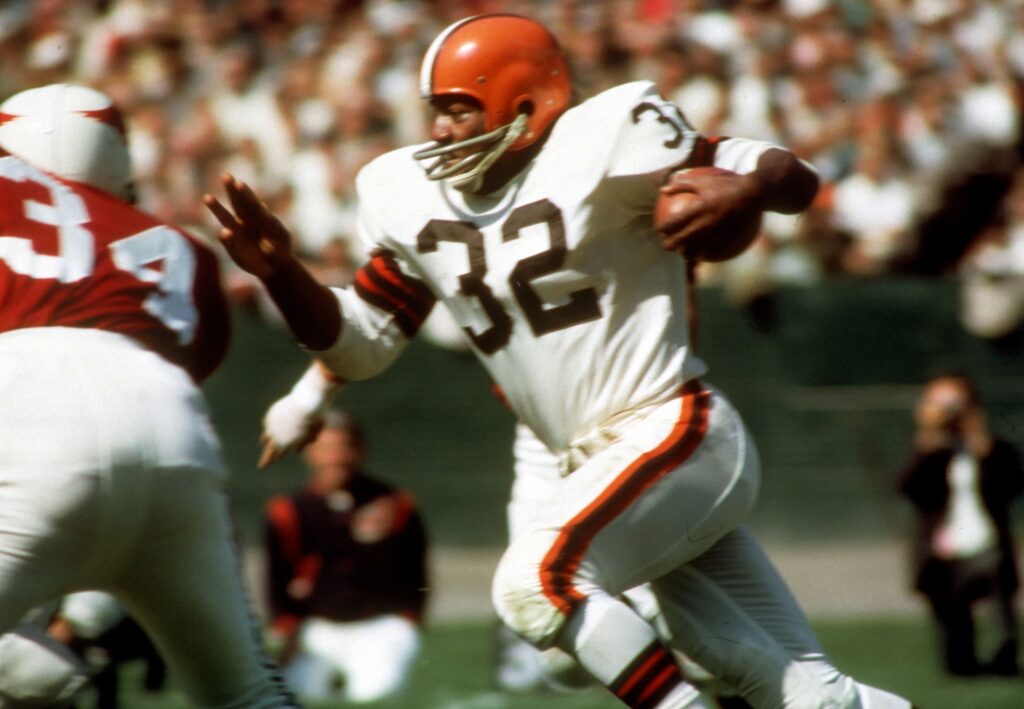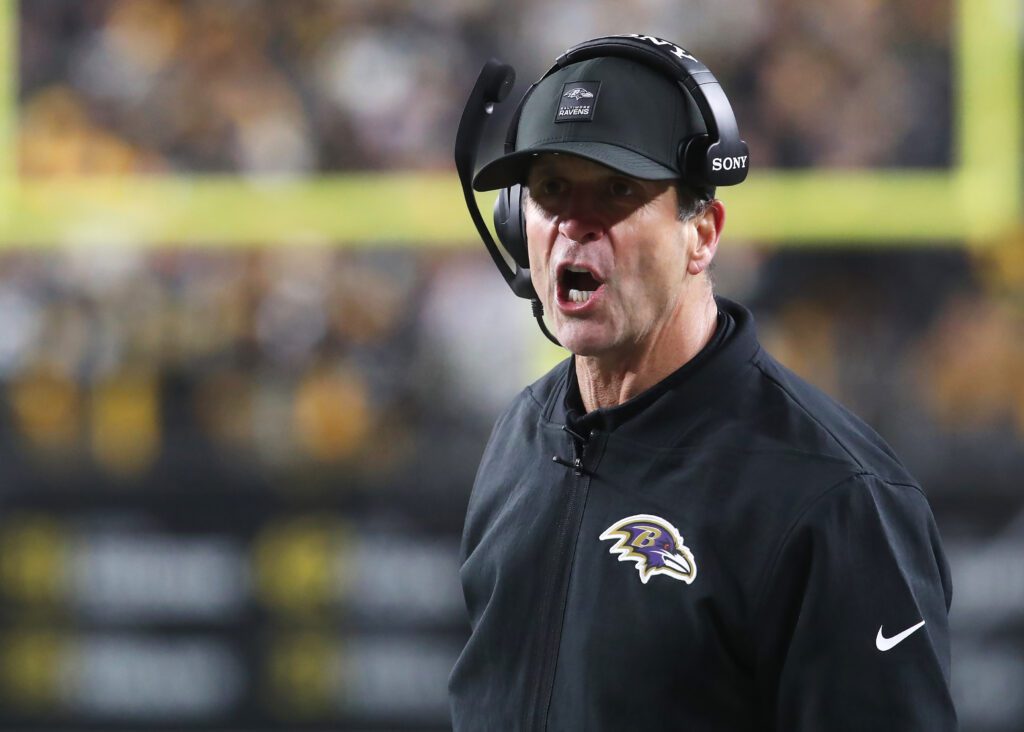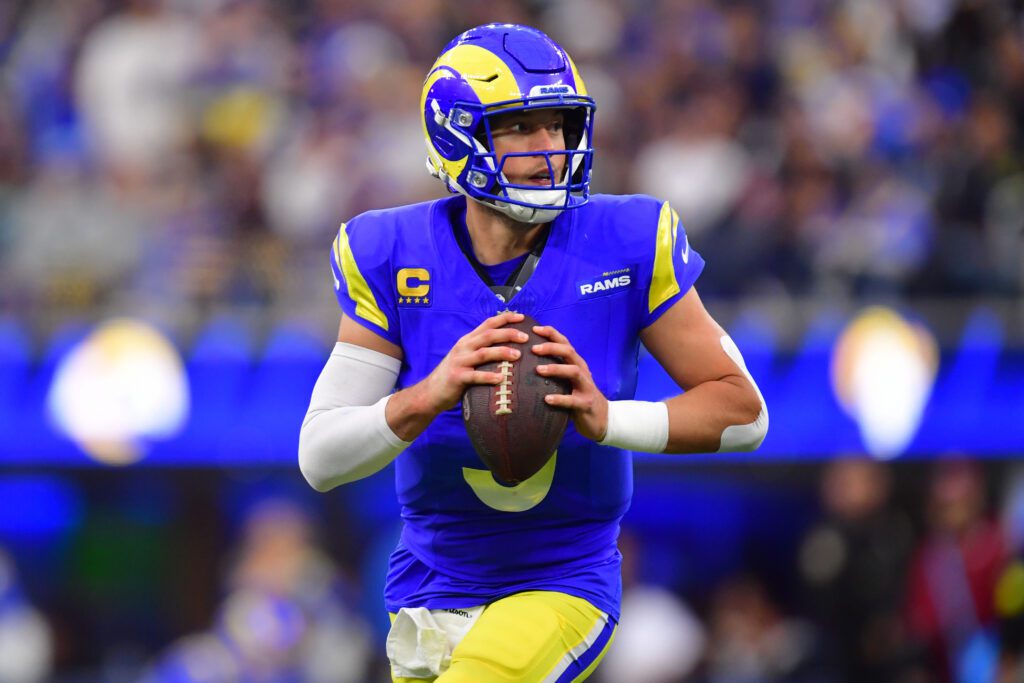Even in his final years, Cleveland Browns legend Jim Brown managed to stand atop the mountain.
In the current sports talk climate where pundits and critics find eras or barometers to dismiss accomplishments of current or former players, Brown was the rare icon whose feats were never handwaved. Brown wasn’t Babe Ruth, who veteran MLB pitcher Adam Ottavino once claimed he’d strike out “every time.” He also wasn’t LeBron James, who is still subject to the argument he’d struggle in a more physical era of basketball.
Brown, just as was the case during his playing days, was universally regarded as an all-timer. Period, full stop. No further argument needed.
Following Brown’s recent passing at 87 years old, now feels like the perfect time to revisit the Pro Football Hall of Fame running back’s greatest seasons—and trust us when we say there were plenty of deserving candidates. To best determine Brown’s best years, we factored in statistics, the team’s final finish, and the context surrounding the seasons in question.
After considering the aforementioned prerequisites, we believe Jim Brown’s greatest seasons rank as follows:
Ranking Jim Brown’s Greatest NFL Seasons
Honorable Mention: What a Way to Say Hello (1957)
Jim Brown began his NFL career by watching five players, including future Hall of Famers Paul Hornung (first-overall overall to the Green Bay Packers) and Len Dawson (fifth to the Pittsburgh Steelers), go before him in the 1957 NFL Draft. The Syracuse alumnus needed no time justifying the Browns’ investment, rushing for an NFL-leading 942 yards and nine touchdowns on 4.7 yards per attempt.
Brown earned unanimous Rookie of the Year honors — UPI and the Associated Press each recognized major award winners in the pre-merger days — and the AP NFL MVP Award. For many players, such a rookie season would probably rank among their top three seasons, if not the definitive greatest campaign.
Brown, if you haven’t figured out, remains in his own category.
5. The Dual-Threat Machine (1961)
Brown’s 1961 campaign is an intriguing one partly because his 4.6 yards per carry is tied with 1959 for his second-lowest single-season total. However, Brown’s age-25 season also marked the only time he topped 300 carries in a season, finishing with a league-leading 305 in 14 games.
Brown’s fifth NFL season also marked the first time Cleveland took advantage of his receiving skills. The veteran Pro Bowler had a career-high 46 catches, 459 yards, and two touchdowns in addition to his league-leading 1,408 rushing yards. Although Brown had one more catch and 58 more receiving yards a year later, one can’t ignore his NFL-best 1,867 yards from scrimmage under the 1961 section on his trading card.
4. Finally a Champion (1964)
With plenty of mileage already on his tracks, Brown rushed for 1,446 yards and seven touchdowns during his age-28 season in 1964. More importantly, the All-Pro running back returned to the NFL Championship Game — the penultimate one before the Super Bowl arrived in 1966 — and hosted Johnny Unitas’ Baltimore Colts.
Although he failed to reach the endzone, Brown recorded 151 yards from scrimmage (114 rushing, 37 receiving) in a 27-0 shutout victory. After coming up short in 1957 and 1958, Brown finally had a championship ring to show for his efforts.
3. Brown Leaves No Doubt (1958)
The thought of a sophomore slump may not have been as pronounced in 1958, especially without social media or cable TV. But because sports fans are often cynical, we’re sure at least one observer was skeptical of Brown repeating his rookie numbers.
Well, they would have been correct, if only because Brown’s second-year numbers weren’t close. Instead, the young running back blew his initial statistics out of the water, totaling an NFL single-season record 1,527 rushing yards and tallying a league-high 17 rushing touchdowns. Brown averaged 6.1 yards per touch and earned MVP honors from both the AP and UPI.
What sophomore slump?
2. What a Way to Say Goodbye (1965)
Football fans knew Brown’s time on the gridiron was nearing its end in 1965, though not because of his play. As a 29-year-old that fall, Brown rushed for 1,544 yards and 17 touchdowns on 5.3 yards per carry, earning AP and UPI NFL MVP honors for the third time.
Fittingly, Brown’s final NFL game came with a championship on the line. Although the living legend totaled 94 yards from scrimmage (50 rushing, 44 receiving), Cleveland lost 23-12 to Bart Starr and the Packers. Only months later, Brown — who’d previously intended to play his final season in 1966 — famously retired early to focus on acting and his role in The Dirty Dozen, a World War II movie starring, among others, Lee Marvin, Ernest Borgnine, and Charles Bronson.
1. Brown (sort of) Becomes Mr. 2,000 (1963)
Entering the 2023 NFL campaign, Brown’s 1,863 rushing yards from 1963 are the 13th-highest single-season total in league history. Only O.J. Simpson, who rushed for 2,003 yards in 1973, had more rushing yards in a non-16 or 17-game season. No Cleveland running back, not even Nick Chubb, has matched Brown’s output in 60 years.
Interestingly, Brown wasn’t the unanimous MVP in 1963, only earning the honor from UPI. The AP instead opted for New York Giants quarterback Y.A. Tittle, who notched 36 passing touchdowns. Quarterbacks are always going to get the love, aren’t they?
Had Brown maintained his 133.1 yards per game average in a 16-game season, he’d have finished with 2,130 yards; Eric Dickerson, the current single-season record holder, had 2,105 rushing yards over 16 games in 1984. Brown’s numbers in a 17-game year would’ve given him 2,263 yards, far and away the NFL record.
Brown’s 268 receiving yards gave him 2,131 yards from scrimmage, which might not sound impressive now. However, he was the first player in league history to accomplish that feat and one of only three (joining Simpson and Walter Payton) to do so in a 14-game season.
Brown may not have won a championship or both MVP Awards in 1963, but it’s clear not only was this his best year, but it’s among the greatest single-season performances in league history.
Main Image: Tony Tomsic-USA TODAY Sports



